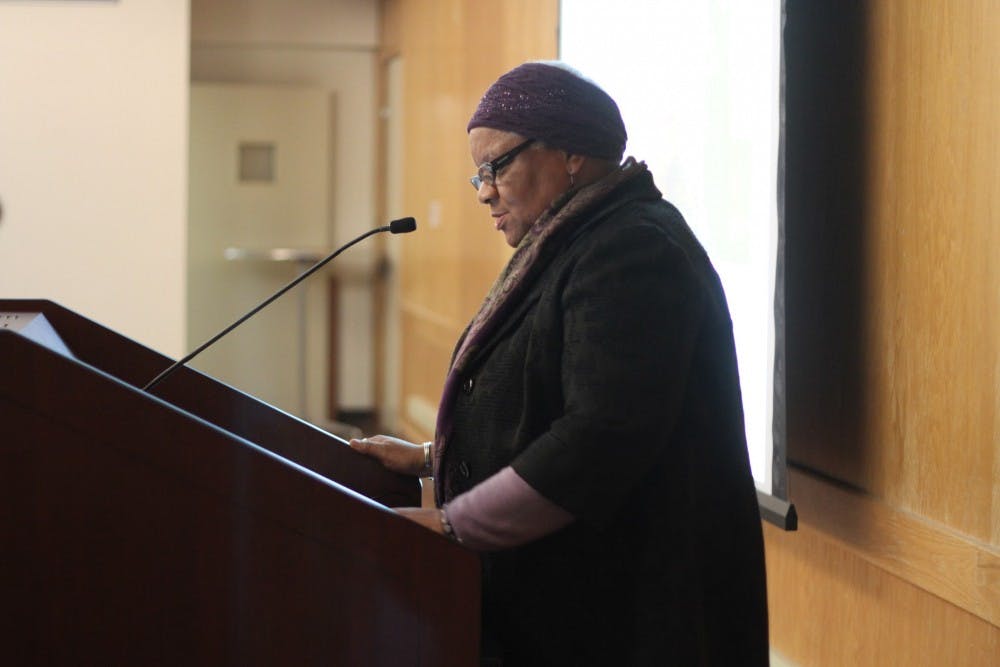By Lydia Laythe
The sticky sound of his tongue sliding and tapping against the back of his teeth. The soft, rolling accent of her voice as she turned each “-ch” into an “-sh.” The way his voice boomed as he built up to the middle of a sentence or word, and then fell softly. The way her s’s hissed and her o’s were big and hollow; how the end of every sentence floated softly away.
The strong, striking contrast of her voice as every vowel hummed in my ears. The way her voice had wavered momentarily, straining to speak through a constricting throat; the corners of her mouth pulling involuntarily downward and the words getting caught between her lips.
The way she took a deep breath, regained composure, and read: “Something has to be done about the way the world is set up.”
That’s what it sounded like to sit in the Terrace Room on Thursday night at the 26th Annual National African American Read-In.
Avel Gordly, the featured speaker, wore a purple scarf wrapped loosely around her head. Before she stood up, her back was to me and I could see her short, white hair haloed by that purple cloth.
Gordly is an activist, community organizer and former Oregon politician. The first African American woman elected to the Oregon State Senate in 1996, Gordly read from her memoir “Remembering the Power of Words.”
While she stood in front of the disappointingly (though not surprisingly) small audience in the basement of The Commons, I closed my eyes and listened to her words.
Her voice was warm and deep. It grew raspy in places, cracking as she recalled a defining moment in her life. It was the 60s, and she was marching in protest of the murder of four young girls in a church in Birmingham, Alabama. She was only sixteen.
“Something about that moment in time remains heavy for me to this day,” Gordly read from her memoir. “Yet that march told me that I could have a voice too even as a young person.”
She looked up at that moment, from behind thick, rectangular, black-framed glasses - as if saying to the young people in the room: You can have a voice, too.
She continued, her voice sounding worn as she slowly mulled over every line - thoughtfully pausing in places I’m sure she had read a hundred times before.
“Words carry so much feeling, history, meaning,” Gordly read. “Words carry the power to inspire. They can also inflict great pain.”
Words are powerful, but behind every word is a human voice. Behind every powerful word is a courageous voice. Behind every hurtful word is a hurting voice. Behind every loving word is an equally loving voice. And behind every humble word is a living, breathing human voice.








